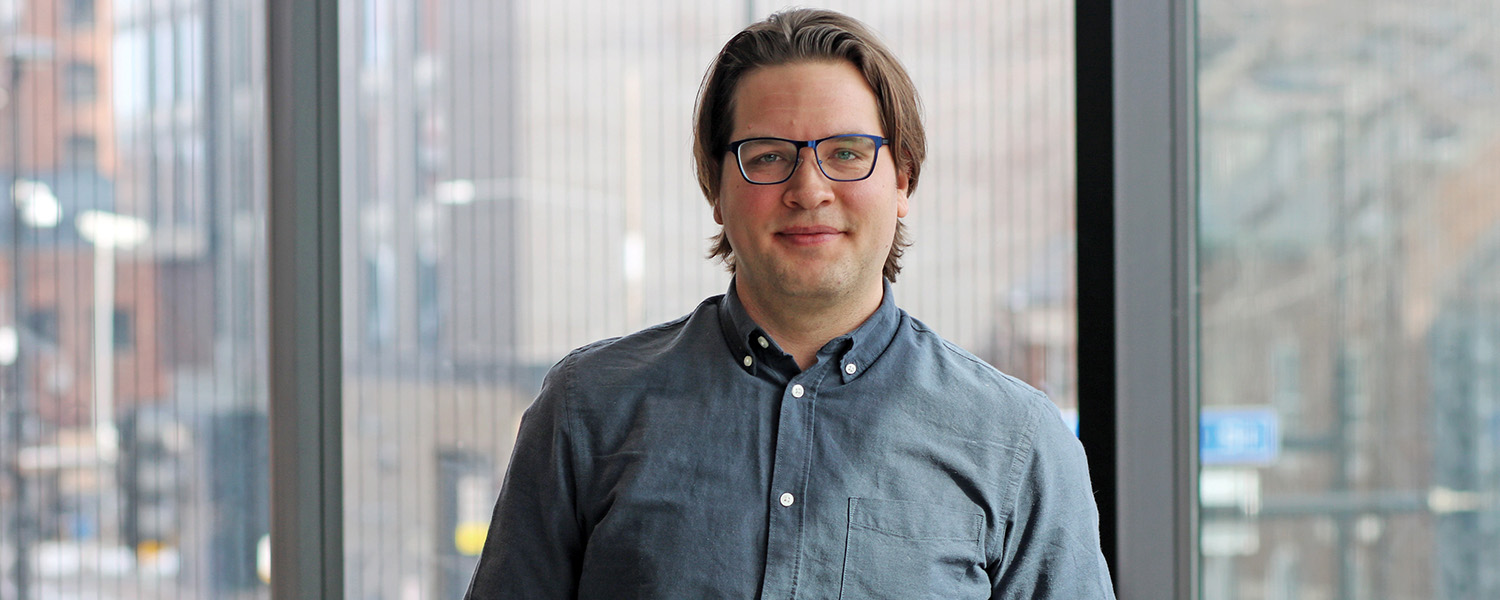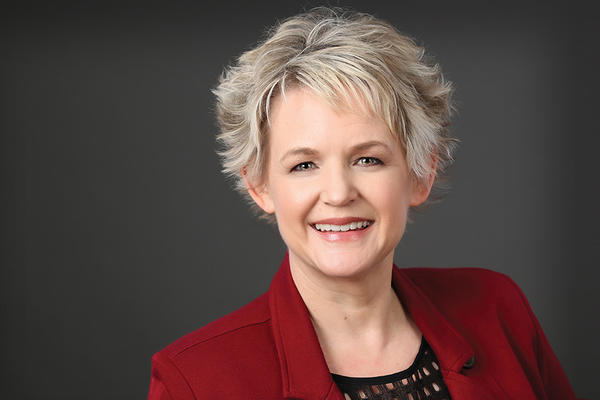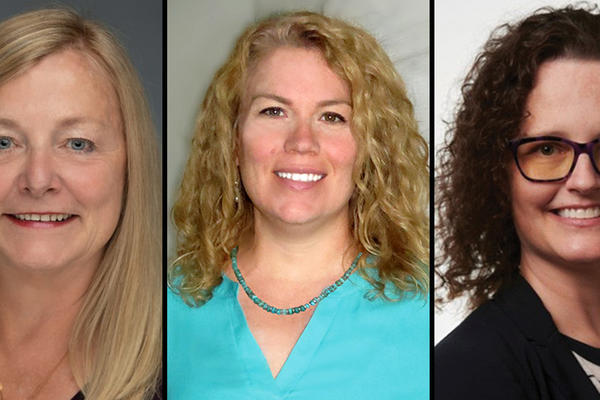Finding his nursing niche
As a DNP student, Zach Taylor is finding his passion for health equity and planetary health
May 3, 2023
Kelli Billstein

As a descendant of the Flandreau Santee Sioux Tribe in South Dakota, Zach Taylor participates in the Doctoral Education Pathway Program for American Indian/Alaska Native nurses, which seeks to grow the number of Indigenous advanced practice nurses and create community among them.
Zach Taylor, MSN, CMSRN, thrives when he’s able to engage in both hands-on work and strategic thinking.
A career in nursing that straddles both worlds is one of the primary things that drew him to enroll in the Doctor of Nursing Practice (DNP) program in the adult/gerontological clinical nurse specialist (CNS) specialty. He’s now about to graduate, balancing direct patient care and systems-thinking leadership to promote change in his field.
Having recently started a new position as a diabetes clinical program coordinator at Abbott Northwestern Hospital, his nursing career is already taking off in exciting new ways. What makes Taylor’s career especially interesting, though, is that his path to arrive at this point has been nonlinear, requiring him to refine his expertise and occupational identity over the years.
“My journey toward nursing was a long and winding road,” Taylor says. In undergrad at the U, he majored in fine arts with a painting focus and minored in French studies. After graduation he worked in graphic design and finance, then spent a year in France teaching English. Upon return to the U.S., he began exploring health care, taking the prerequisite courses necessary to attend medical school. It was while shadowing a friend in a hospital progressive care unit that Taylor fully realized nursing was the career he’d been searching for.
“What I remember liking about that experience was how well they got to know their patients, identifying their needs and partnering with them to reach their goals,” Taylor says. “Nursing also draws heavily on cognitive, affective and psychomotor skills — a combination that was exciting to me.”
After earning a master’s degree in nursing, he began serving in general medicine at the M Health Fairview University of Minnesota Medical Center. Following three years as a full-time RN, he chose to deepen his expertise by enrolling in the DNP program to become a CNS. “What attracted me to the CNS role was the flexibility. As a CNS you can work similarly to a nurse practitioner seeing patients, but also in a clinical strategizing space, engaging in quality and process improvement, project management and leadership,” he says.
Effectively through the DNP, Taylor had found his nursing niche — a specialized place to thrive. As a CNS he’d learn to exercise that full range of what he found exciting about nursing in the first place.
His doctoral courses helped to augment his skills and interests. Impressed by the overall polish and professionalism of the DNP program, Taylor was especially engaged in his translation-to-practice and quality improvement courses, as well as a course in health policy leadership. “I think policy is an uncomfortable area for a lot of nurses,” Taylor says. “It's not traditionally an area where nurses have felt like they have a lot of power or much of a voice. So I’ve enjoyed learning how to better engage and figure out strategies for being an effective policy agent, by communicating with legislators or being on committees.”
As a descendant of the Flandreau Santee Sioux Tribe in South Dakota, he’s also involved in the Doctoral Education Pathway Program for American Indian/Alaska Native nurses, which seeks to grow the number of Indigenous advanced practice nurses and create community among them. For Taylor, who didn’t grow up on a reservation but was taught to value and appreciate his Indigenous heritage, the chance to embrace the intersection of his Native heritage with his profession as a nurse has been meaningful.
“There’s a representation problem in health care right now,” Taylor says. “Frequently the nursing workforce doesn’t reflect the demographics of the community that it serves. People of color and folks who identify as LGBTQ are underrepresented in the nursing profession. Here in Minnesota, we serve a fairly large Indigenous population, but Indigenous nurses make up an exceedingly low proportion of the total workforce. The Pathway Program helps address this issue by increasing mentorship and support, and hopefully increases the number of practicing Indigenous nurses.”
In addition to meeting others and participating in community events, the Pathway Program inspired Taylor to begin learning the Dakota language. As busy as he is these days, the Dakota phrase he often practices is: “Pez˙uta sápa wacin” (Peh-ZHOO-ta SAH-pah wa-CHIn), which translates to “I want some coffee.”
As he looks ahead to graduation, he’s passionate about carrying forward two important areas of focus in his profession: health equity and planetary health. In the realm of health equity, Taylor is driven to increase access to high quality health care for all populations, addressing head-on the health disparities that exist today. He says, “I think about health equity and representation a lot. On a personal level, several underrepresented identities intersect within me — being part Indigenous, being gay and being a male in the nursing profession. I have frequently worked with groups who have different health outcomes than the rest of the population due to racism, stigma and/or socioeconomic inequities. Advancing health equity by working with and empowering people who have been underserved in this messy and broken health care system is something I really do want to have an impact on.”
When it comes to planetary health, Taylor is equally passionate about making sustainability improvements to support a healthier planet that, in turn, supports healthier populations. He does this by joining green committees that make incremental progress within hospitals. “There's just so much waste, pollution and energy use inherent in our current health care system,” Taylor says. “The green committees I’ve been part of make little changes to reduce waste, move to different products and help raise awareness of the problem. In the future, I hope to get involved in organizations that are making larger, concerted efforts toward the health of our planet and all living populations.”
Eager to make an impact in areas he’s passionate about, Taylor is poised to graduate and lean into causes and projects where he can be a catalyst for positive change.


